[The Gromwells and Puccoons of Mt. Adams and Vicinity]
Columbia Puccoon, Puccoon, Western Gromwell, Western Stoneseed
Lithospermum ruderale
Synonym: Lithospermum pilosum
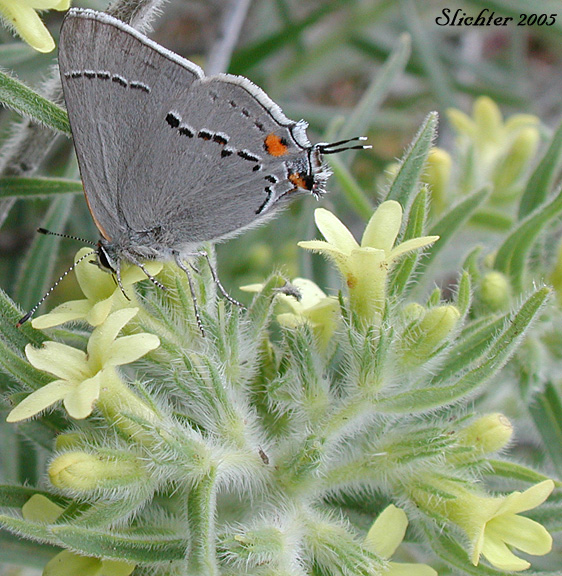
The photo above shows the attractive flowers
of puccoon with a nectaring gray hairstreak (Strymon melinus) as seen
above the mouth of the Deschutes River in the eastern Columbia River Gorge..........April
24, 2005.
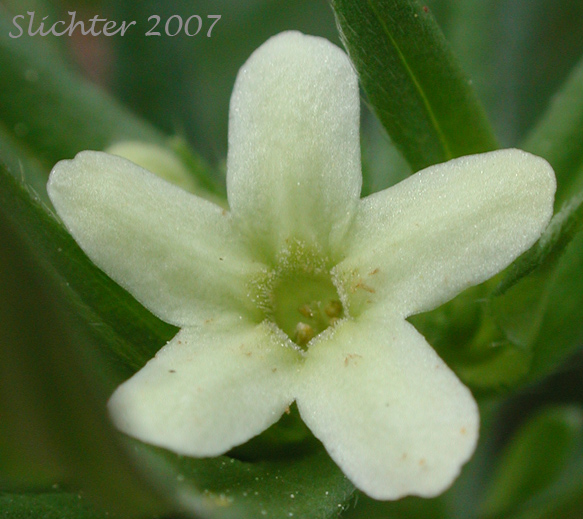 The photo at right shows a close-up of the flower of puccoon as photographed near the trailhead for the Willard Springs Foot Trail, Conboy Lake National Wildlife Refuge...........May 19, 2007.
The photo at right shows a close-up of the flower of puccoon as photographed near the trailhead for the Willard Springs Foot Trail, Conboy Lake National Wildlife Refuge...........May 19, 2007.
Characteristics:
Puccoon is a perennial flower of some attractive nature with
multiple leafy stems arising 20-60 cm high from a woody base. The stems are
lax or almost prostrate to ascending. The leaves are all found on the stiffly
haired stems, the lower ones largely reduced with the upper leaves numerous
with sessile bases. Individual leaves are lanceolate to linear in shape and
range from 3-10 cm long and 2-10 mm wide.
The flowers are clustered among leafy bracts in the upper axils.
The flowers are 5-lobed with a light greenish-yellow coloration. The flowers
are 8-13 mm long with the tube 4-6 mm long and the limb 7-13 mm wide. The corolla
tube is glandular within the tip. Each flower produces 4 cone-shaped, hard and
stony nutlets or seeds.
The genus name Lithospermum means stony (Litho-) seed (-sperm)
in reference to the stony seeds or nutlets.
Puccoon was widely used as medicine by the Plains Indians. The
roots were eaten when cooked and also were a remedy for respiratory ailments.
Habitat:
Puccoon may be found in a variety of open, fairly dry places
in the foothills and grasslands to moderate elevations in the mountains. It
may be found in sandy, gravelly and deep loam soils.
Range:
Puccoon may be found from southern British Columbia south to
the east of the Cascades to northern California and thence east to southern
Colorado. It is occasionally found in drier open places in the Puget trough.
 -
- 
Two views of the inflorescence of puccoon as photographed near the trailhead for the Willard Springs Foot Trail, Conboy Lake National Wildlife Refuge............May 19, 2007. Note the long, slender calyx lobes which are shorter than the tube of the corolla.
 -
- 
Puccoon as photographed along the Willard Springs Foot Trail, Conboy Lake National Wildlife Refuge...........May 16, 2022.
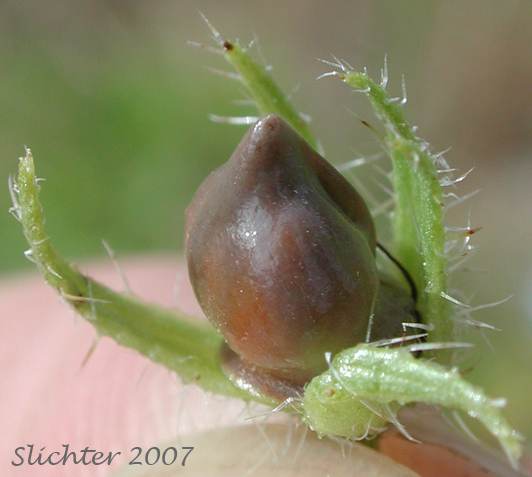 -
- 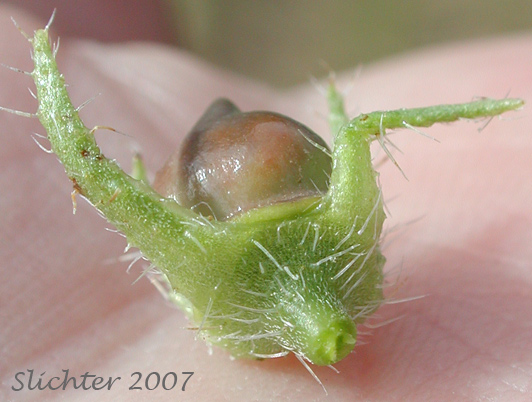 -
- 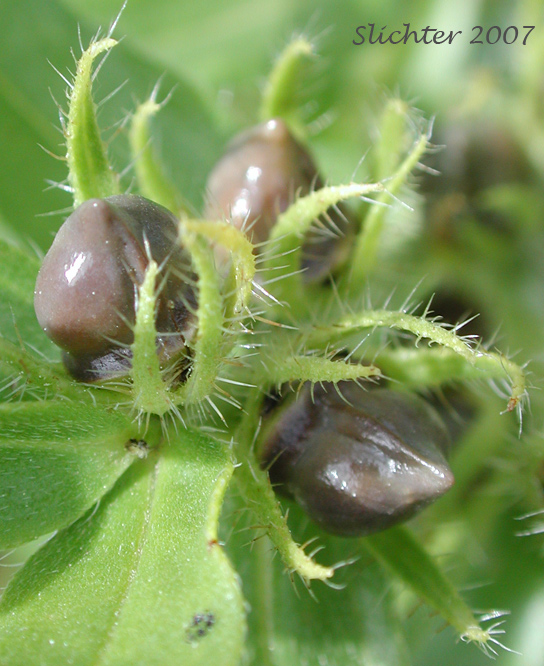
The photos above show various views of the tooth-like seeds of puccoon. Photographed in prairie along Lakeside Road in Conboy Lake National Wildlife Refuge..........July 2007.
 -
- 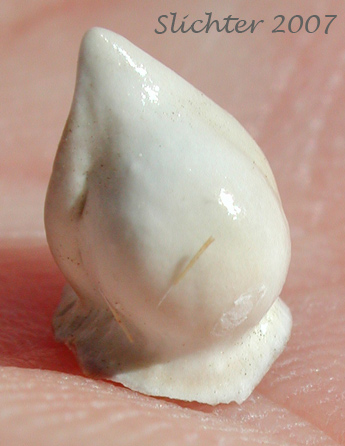
The photos above show various views of the tooth-like seeds of puccoon. Photographed in prairie along Lakeside Road in Conboy Lake National Wildlife Refuge............August 10, 2007.
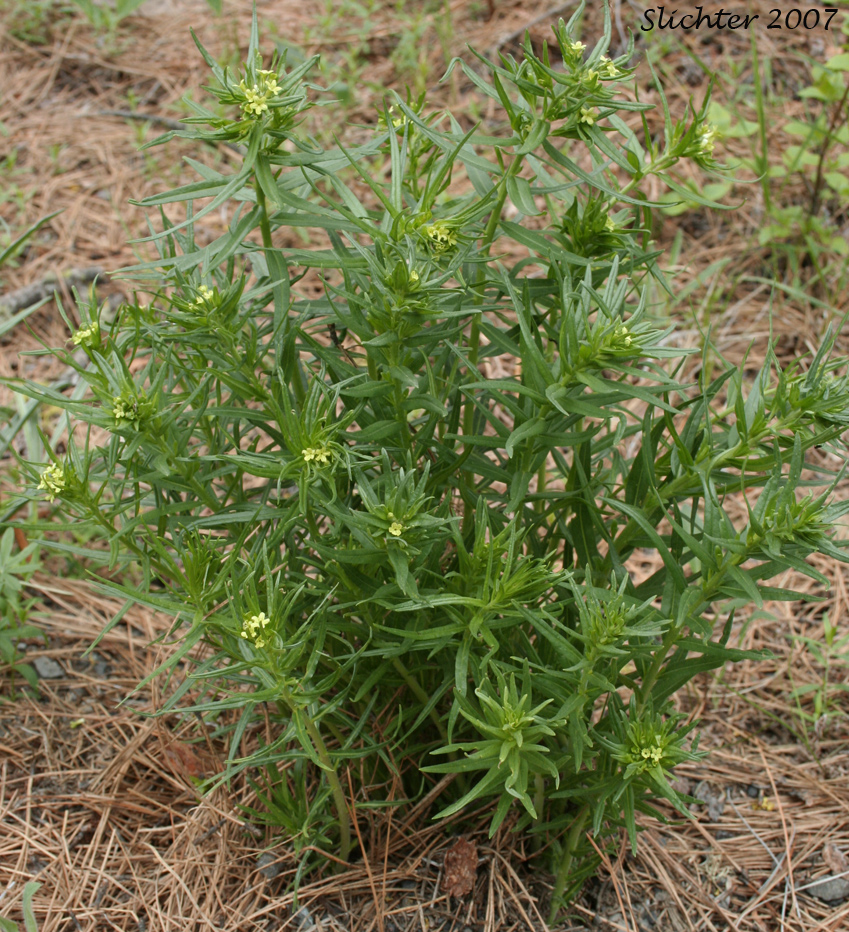
The photograph above shows the typical shape of puccoon as photographed near the trailhead for the Willard Springs Foot Trail, Conboy Lake National Wildlife Refuge...........May 19, 2007. Typically on mature plants, numerous leafy stems arise from the ground and are closely clustered together.

The photo above shows a close-up of a cluster of flowers of puccoon as seen in meadows in Conboy Lake NWR along Lakeside Road about one-half mile west of Fisher Hill Road..........May 10, 2008.
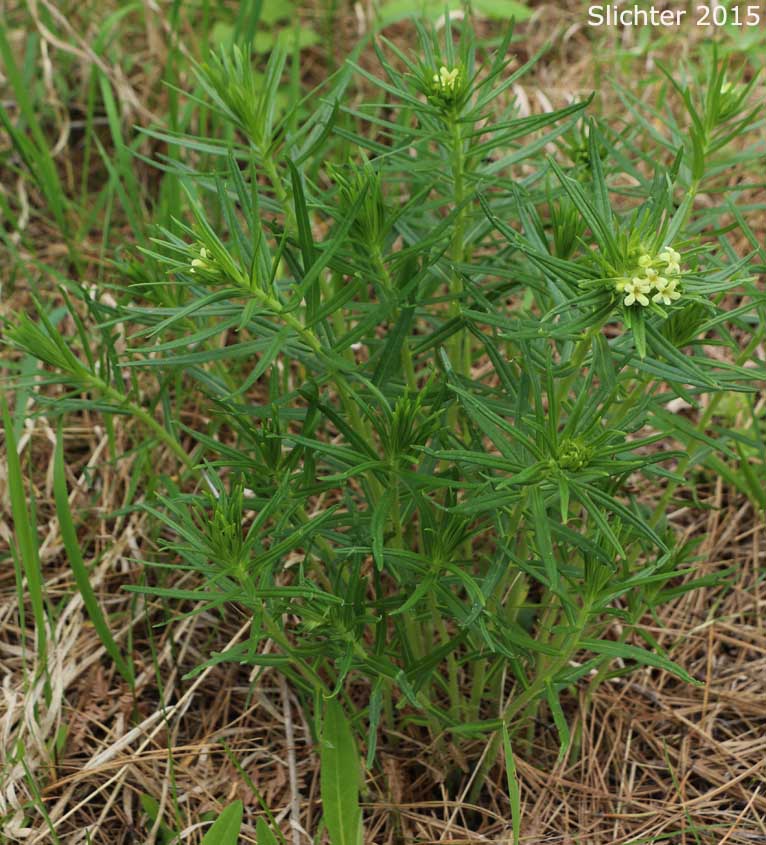 -
- 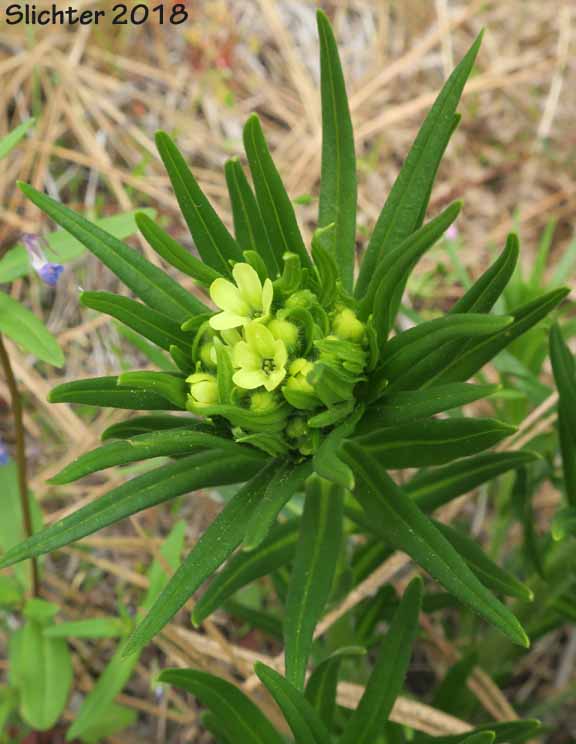
Puccoon beginning to bloom at left in coniferous woods along the Willard Springs Trail at Conboy Lake National Wildlife Refuge.........May 1, 2015. The photo at right shows puccoon beginning to bloom in coniferous woods along the Willard Springs Trail, Conboy Lake NWR......May 1, 2018.
Paul Slichter

 The photo at right shows a close-up of the flower of puccoon as photographed near the trailhead for the Willard Springs Foot Trail, Conboy Lake National Wildlife Refuge...........May 19, 2007.
The photo at right shows a close-up of the flower of puccoon as photographed near the trailhead for the Willard Springs Foot Trail, Conboy Lake National Wildlife Refuge...........May 19, 2007.